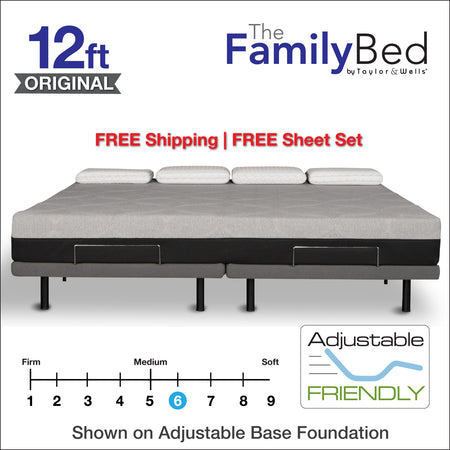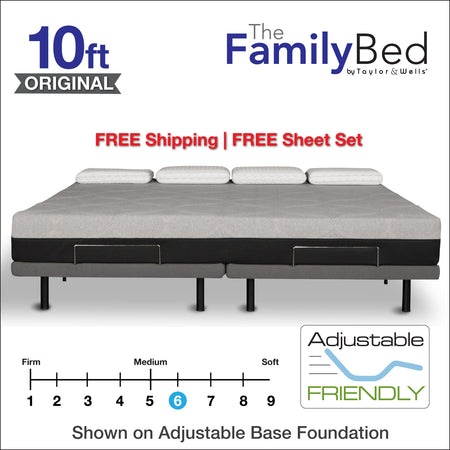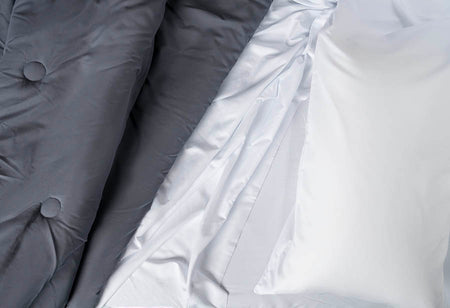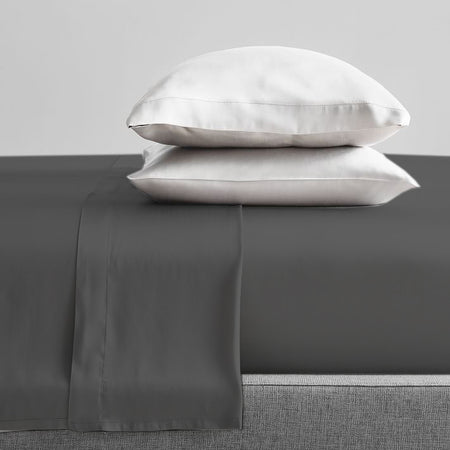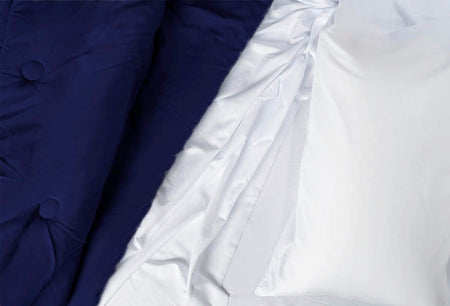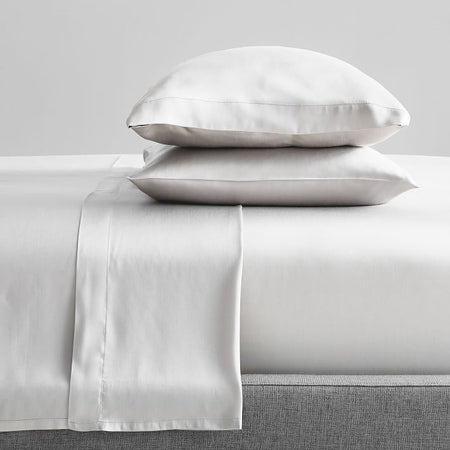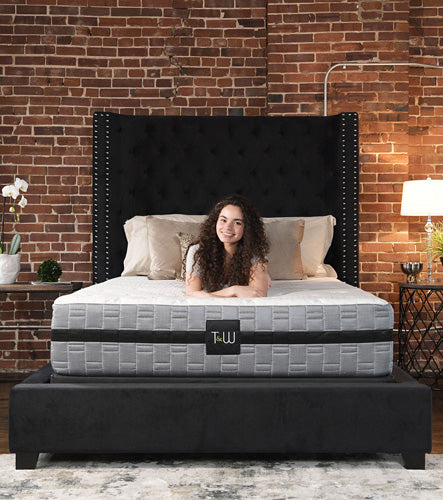Shopping for a new mattress can sometimes bring up a lot of new questions, especially if it's been a while since you bought your last one, as research shows that the average American household replaces their mattress every 7-10 years. Questions like what mattress size is right for me? Or what mattress brand is the best? Or perhaps you are wondering if you should try a different type of mattress, such as memory foam or gel? All of these are popular questions that can usually be answered by a quick trip to your local mattress store. Another question many may ask throughout their mattress buying experience is whether or not mattress thickness matters, and if it does, how much?
Unfortunately, none of these questions are ever one size fits all. This is in part because many people prefer different things; some people need a stiffer mattress for more support, and others prefer a softer one that contours more easily to their body. Also, the desired thickness of a mattress can depend on things like the specific materials that it is made from and the weight of the people who are sleeping on it.
So, how does mattress thickness affect your overall sleep quality?

Generally speaking, mattresses are on average around 10 inches thick. But, there are many other mattress sizes. Here is a list of mattress sizes along with the recommended weight that it can commonly support.
- 2-5 Inches: Low Profile- These are the smallest mattresses that are commercially available. These are typically found in fold away beds or cribs. The weight recommendation is 60 pounds and below. For the majority of people, comfort is a huge sacrifice on these beds.
- 6-8 Inches: Slim Mattresses- These tend to be made out of a variation of foam because they can offer more support in a denser area. The weight recommended for these mattresses is typically 100 pounds and below. Some twin beds fall in this category. These can be great for children or for people with limited mobility as it makes it easier to get in and out of bed.
- 8-12 Inches: Standard Mattress Range- Most mattresses will fall within 8-12 inches in size for thickness. Weight can still matter in this category, or if you are sleeping with a partner. For 8-10 inches, 100-150 pounds is the recommendation and for 10-12 inches it is 150-200 pounds. Most people will find comfort in the standard mattress range.
- 12-16 Inches: Thick, Deep, Or Tall- Mattresses within this range are considered thick, deep, or tall. A lot of hybrid or new foam mattresses will fall into this category. Mattresses of this thickness are also more durable as the materials inside will last longer because they are able to handle more stress-- supporting a higher weight range as well, anywhere between 200-300 pounds.
- 16 Inches And Greater: Extra Thick, Extra Deep, Or Extra Tall- These mattresses are hard to find, but they do exist. They are known for being more expensive and harder to move, but can last longer than the standard 10 years.

About the different mattress layers.
Another thing to consider when thinking about mattress thickness is all of the different layers that mattresses tend to have inside of them. For instance, most mattresses are made up of two distinct layers; the comfort layer and the base/foundation layer.
The comfort layer is the plush top layer that is, well, the most comfortable. What this layer is made of depends entirely on the type of mattress that was purchased. For some innerspring mattresses, this layer is made up of materials like cotton, wool, or sometimes even poly-foam. Latex, hybrid, or memory-foam mattresses are made up of layers with things like gel, latex, and different types of foam, as their name suggests. Standard of quality recommends that you make sure your new mattress has at least 4 inches of these layers to help aid proper comfort throughout the night.
Additionally, the comfort layer can consist of two separate layers, the contour layer and the support layer. These layers are designed specifically for one to offer support and for the other to offer comfort. Either way, mattress providers are constantly looking for new ways to keep up with the popular demand.
The base layer, also called the foundation layer, is the layer that determines mattress durability. It also promotes the breathability and overall support of the mattress. In most high quality mattresses, this layer will make up 50% of its thickness. So for a 12 inch mattress, the base layer should be at least 6 inches thick. Without a good foundation layer, mattresses wear out quicker and can begin to sag in the middle.

It would make sense to assume that the thicker, the better-- and in most cases you may be right-- but finding the right mattress that has the proper height will depend on many things like personal preference, weight, and whether or not you have any issues with mobility or getting in and out of bed.
Thinner mattresses, while reportedly less comfortable and less durable, do have some benefits. People who are of shorter stature, or those who have difficulty climbing up on a tall bed often prefer shorter mattress heights. Slimmer mattresses are also easier to move, so if you have difficult moving heavy objects, or are always on the go, a thinner mattress may be just what you need!
Thicker mattresses are normally the option of choice for people. They are often reported to be more comfortable and to last longer than their thinner counterparts. However, if you are having any difficulty deciding what mattress type is right for you, then please do not hesitate to reach out to us for help! We are more than happy to use our mattress expertise to point you in the right direction and to help you make the choice that will have you sleeping comfortably for years to come!



